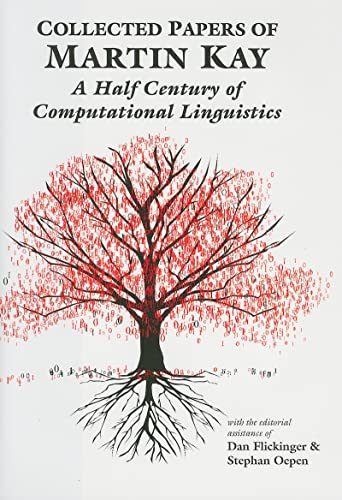Since the dawn of the age of computers, researchers have been pushing the limits of available processing power to tackle the formidable challenge of developing software that can understand ordinary human language. At the forefront of this quest for the past fifty years, Martin Kay has been a constant source of new algorithms which have proven fundamental to progress in computational linguistics.Collected Papers of Martin Kay, the first comprehensive collection of his works to date, opens a window into the growth of an increasingly important field of scientific research and development.
Dan Flickinger is project manager of the Linguistic Grammars Online Project at the Center for the Study of Language and Information, Stanford University.
Stephan Oepen is professor in computational linguistics at the University of Oslo and senior researcher at the Center for the Study of Language and Information, Stanford University.
Martin Kay is one of the preeminent computational linguists in the world, having helped to shape and advance this field for the past fifty years. He is currently the Chair of the International Committee on Computational Linguistics, and the former Chair of the Association for Computational Linguistics. Born and raised in the United Kingdom, he received his M.A. from Trinity College, Cambridge, in 1961. In 1958 he started to work at the Cambridge Language Research Unit, one of the earliest centers for research in what is now known as computational linguistics. In 1961, he moved to the Rand Corporation in Santa Monica, California, where he eventually became head of research in linguistics and machine translation. He left Rand in 1972 to become Chair of the Department of Computer Science at the University of California, Irvine. In 1974, he moved to the Xerox Palo Alto Research Center as a Research Fellow. In 1985, while retaining his position at Xerox PARC, he joined the faculty of Stanford University half-time. He is currently Professor of Linguistics at Stanford University and Honorary Professor of Computational Linguistics at Saarland University. He holds an honorary doctorate of Gothenburg University. In 2005, he received the Lifetime Achievement Award of the Association for Computational Linguistics for his sustained role as an intellectual Linguistics for his sustained role as an intellectual leader of NLP research. His research interests include translation, both by people and machnies, and computational linguistics algo rithms, especially in the fields of morphology and syntax.
![]()
